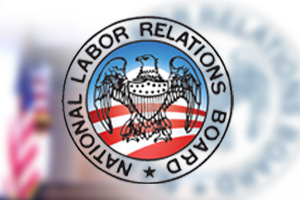
By Michael Burns, courtesy of SBAM Approved Partner ASE
As 2019 came to an end, the Trump National Labor Relations Board (NLRB) issued two more decisions rolling back the pro-labor decisions rendered during the Obama administration’s NLRB. These are NLRB decisions that apply to non-union employers as well as unionized employers.
One of the most controversial decisions of the Obama era NLRB was its holding that any company rule requiring confidentiality of information during a disciplinary investigation would be considered unlawful. The NRLB reasoned that employees had the right to talk to one another about cases that impacted them being conducted by the company. Rules establishing confidentiality during an investigation is a longstanding forensic principle intended to ensure integrity of facts while any investigation is conducted. The NLRB ruling also ran contrary to the Equal Employment Opportunity Commission’s (EEOC) guidance on how to conduct a proper discrimination investigation putting the employer in an exposed position vis a’ vis EEOC investigation guidelines.
Not so coincidentally, on December 31st the DC federal court told the NLRB it needed to correct conflicts with its pro worker rulings pertaining to those workers use of bias based harassment and hostility while expressing disagreement with company policy or disciplinary practices. Constellium Rolled Products Ravenswood LLC and USW (Case# 09-CA-116410)
The Obama era NLRB turned the forensic principle of confidentiality during investigations on its head for labor related investigations by holding that an employer could only require confidentiality of employees that were party to the investigation if the employer could show the investigation would be compromised without confidentiality or whether the employer’s interest in preserving the integrity of the investigation it was conducting outweighed the employee’s NLRB Section 7 rights. This was difficult to do during the normally short time period after an incident and as an investigation ensues.
This decision, called Apogee Retail LLC (368 NLRB No. 144 92019), overturns the infamous Banner Health decision. To further establish its reasoning the current NLRB used its Boeing Company ruling that is being used to analyze company rules of all sort. The Boeing decision puts company rules and employee handbook policies into three categories:
Category 1 – Rules that are lawful because they either do not interfere with employee rights or the employer’s justification for the rule outweighs any adverse impact.
Category 2 – Rules that should require individual assessment to determine the balance of employer and employee interests.
Category 3 – Rules that are deemed unlawful and are rules where business justifications cannot outweigh the adverse impact on employees’ rights. A primary example of this is a rule prohibiting discussion of wages.
The Apogee decision held that confidentiality rules are Category 1 rules.
A second decision by the NLRB in December also overturned a previous unpopular pro employee ruling pertaining to the almost unfettered use of employer email systems for non-business-related purposes. The Obama era decision referred to this as Purple Communications and held that employees had a presumptive right to use company email for organizing and concerted activity purposes (Sec. 7 NLRA). Rules prohibiting the use of company communications equipment were considered unlawful. The NLRB reinstated its previous Register Guard ruling that permitted employers, “without exception”, to implement rules restricting employee use of company communications systems (email system). The new Caesars Entertainment ruling does contain one employer restriction. It recognized an employee’s right to use the company email system if the company email system is the only “reasonable means” of communications between employees.
In a third decision handed down last month (that is of interest to employers that are unionized) the NLRB restored the right of employers to stop collecting dues after a collective bargaining agreement expires. This decision restores a previous rule again changed by the Obama Board whereby a unionized employer was obligated to continue collecting union dues under the CBA’s dues check-off provision once the contract had officially expired. The right of the employer to suspend their collection of dues on behalf of the union is believed to create an additional incentive for unions to agree to reasonable employer terms during negotiations prior to a contract’s expiration.